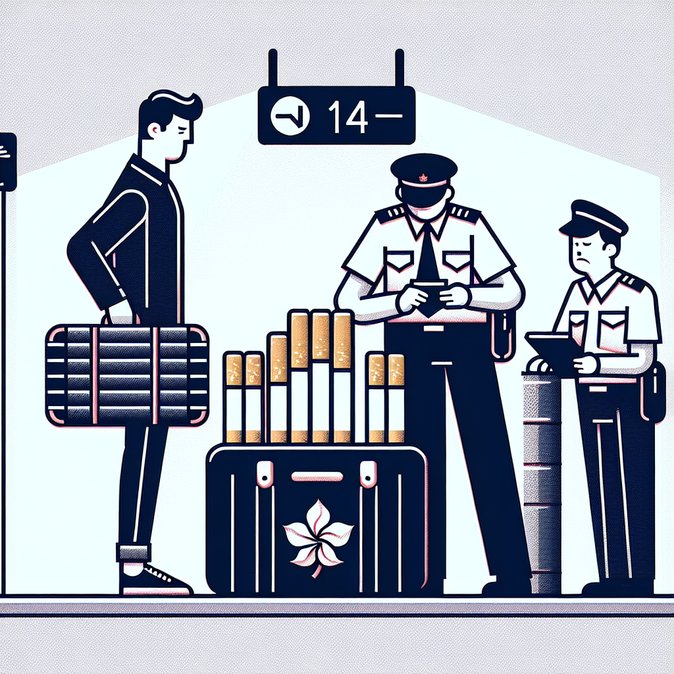
A 29-year-old inbound passenger was sentenced to four months in prison and fined HK$2,000 on 23 October for failing to declare 20,700 duty-not-paid cigarettes discovered in his baggage at HKIA two days earlier. The haul—worth HK$93,000 with HK$68,000 in unpaid duty—marks one of the year’s larger personal-concealment cases. Customs welcomed the custodial term as a “deterrent” and reminded the public that cigarette duty evasion carries penalties up to HK$2 million and seven years’ jail.
Frequent-flyer programme managers should note that tobacco allowances for visitors remain capped at 19 cigarettes. Misunderstanding this limit, especially by passengers transiting from lower-tax jurisdictions, can lead to arrest. The conviction also coincides with Hong Kong’s proposal to hike tobacco duty in the 2026 Budget, which could widen price gaps with neighbouring duty-free hubs and tempt price-arbitrage smuggling.
From a compliance perspective, companies reimbursing per-diem purchases must ensure policies forbid claiming undeclared duty-free beyond legal limits. Failure could expose both employee and employer to prosecution under the Dutiable Commodities Ordinance.
The incident further aligns with Hong Kong’s implementation of blockchain-backed excise stamps, slated for roll-out in 2026, to track legitimate cigarette packs. Mobility stakeholders should expect more real-time Customs-Immigration data-sharing, driving faster interdictions but also potentially longer clearance for flagged travellers.
Frequent-flyer programme managers should note that tobacco allowances for visitors remain capped at 19 cigarettes. Misunderstanding this limit, especially by passengers transiting from lower-tax jurisdictions, can lead to arrest. The conviction also coincides with Hong Kong’s proposal to hike tobacco duty in the 2026 Budget, which could widen price gaps with neighbouring duty-free hubs and tempt price-arbitrage smuggling.
From a compliance perspective, companies reimbursing per-diem purchases must ensure policies forbid claiming undeclared duty-free beyond legal limits. Failure could expose both employee and employer to prosecution under the Dutiable Commodities Ordinance.
The incident further aligns with Hong Kong’s implementation of blockchain-backed excise stamps, slated for roll-out in 2026, to track legitimate cigarette packs. Mobility stakeholders should expect more real-time Customs-Immigration data-sharing, driving faster interdictions but also potentially longer clearance for flagged travellers.








